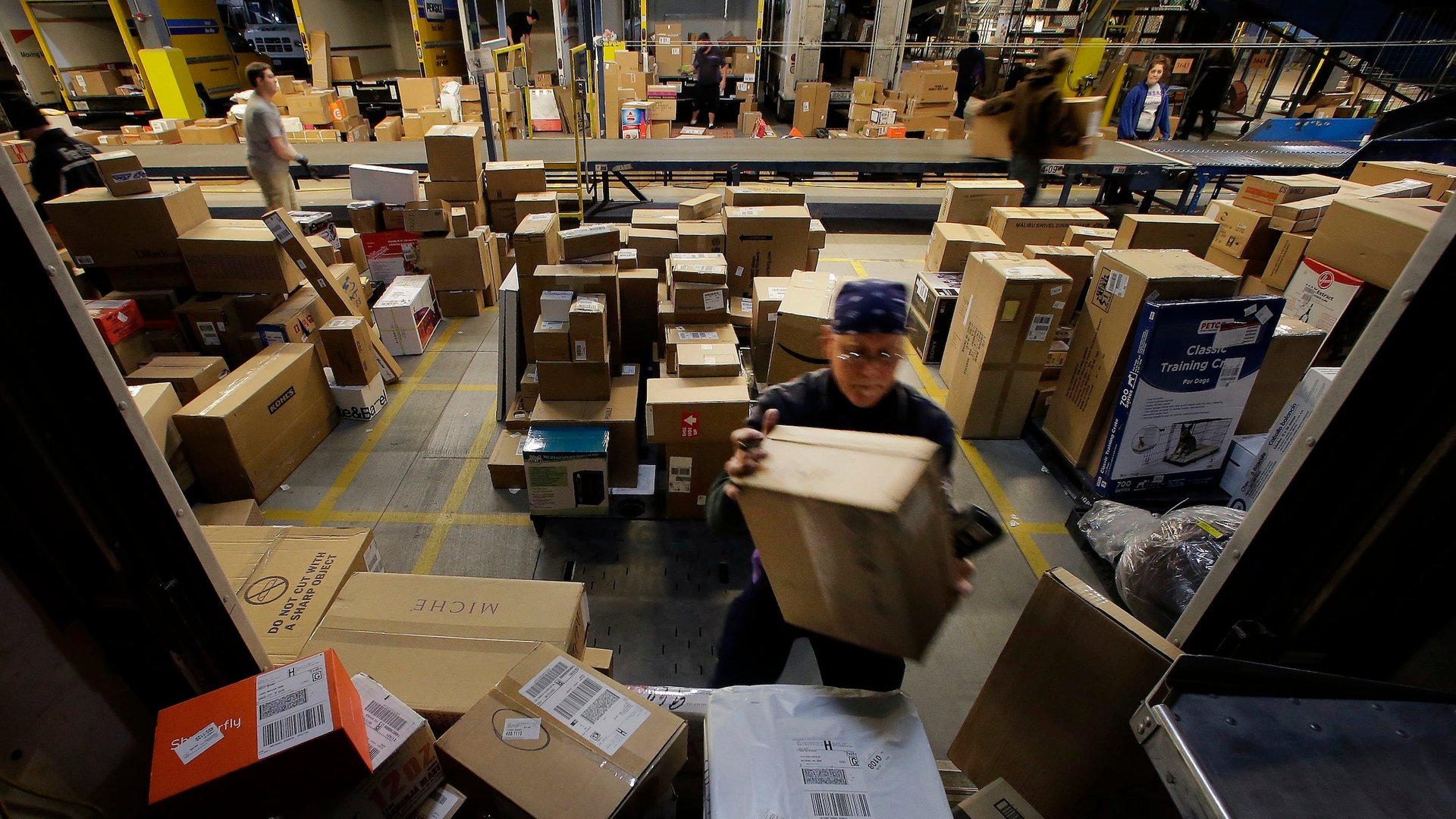Why Fedex isn’t profiting from an uptick in global trade
FedEx reported sub-par earnings today, sending share prices down more than 5% in US trading. With just $1.13 in earnings per share—versus the $1.38 Wall Street was expecting—the company blamed its outdated fleet of inefficient planes for cutting into profits. But that’s not the complete picture; international export volume increased by 4% during the quarter, and executives said in a conference call that all their planes were full of cargo. So what’s really going on?


FedEx reported sub-par earnings today, sending share prices down more than 5% in US trading. With just $1.13 in earnings per share—versus the $1.38 Wall Street was expecting—the company blamed its outdated fleet of inefficient planes for cutting into profits. But that’s not the complete picture; international export volume increased by 4% during the quarter, and executives said in a conference call that all their planes were full of cargo. So what’s really going on?
FedEx’s planes may be expensive and old, but the real problem—according to executives—is that it’s poorly positioned to manage a market with too many planes. A lot of the cargo the company is moving doesn’t actually need to be shipped by international air, it says. Instead, it found it was losing money on international cargo that it categorizes as “deferred” shipments; less urgent shipments that are offered at a lower cost.
David Bronczek, the president and CEO of FedEx Express, blamed this on the fact that there are too many planes in the air—particularly to and from Asia—to handle the volume of cargo that’s actually being shipped that way (preliminary transcript via Factset):
Because of that overcapacity people are looking for market shift in their pricing. And the issue for us is [presumably he means isn’t - SF] that we don’t have enough volume; we have too much volume in the wrong network…Our overall growth in deferred [shipping] was 12%, and quite frankly that’s only because we had to cap because our planes were coming out of Asia were full blown the wrong product type so we’re moving the traffic into lower-cost network, opening up our Express freighters for truly IP, truly International Priority traffic…Right now, until the marketplace corrects itself on the overcapacity, we’re taking the lead for our business.
That’s why FedEx is deciding to pull old planes and reduce capacity from routes in and out of Asia, a region it thinks is particularly congested.
Air cargo experts have been concerned that there may be too much capacity in international markets for a while, particularly as demand for goods in Europe has declined. That’s had a strong effect on Asia; the US overtook the EU as the number one buyer of Chinese exports last year. And though more goods are moving around Southeast Asia, they don’t necessarily need to go by air. Let’s not forget that we’re also living in a world of too many ships.
Fedex’s problems, then, can be seen as continuing aftershocks of the financial crisis. Shippers—both in the air and at sea—prepared for a 2013 with far more trade than we currently have. So even signs that the global economy is dragging its feet towards a recovery aren’t enough to reboot the market. Eventually, shippers will have to remove ships and airplanes from the market to make running routes viable. We’ve already seen that in the ocean freight world; FedEx will continue that trend in the air.